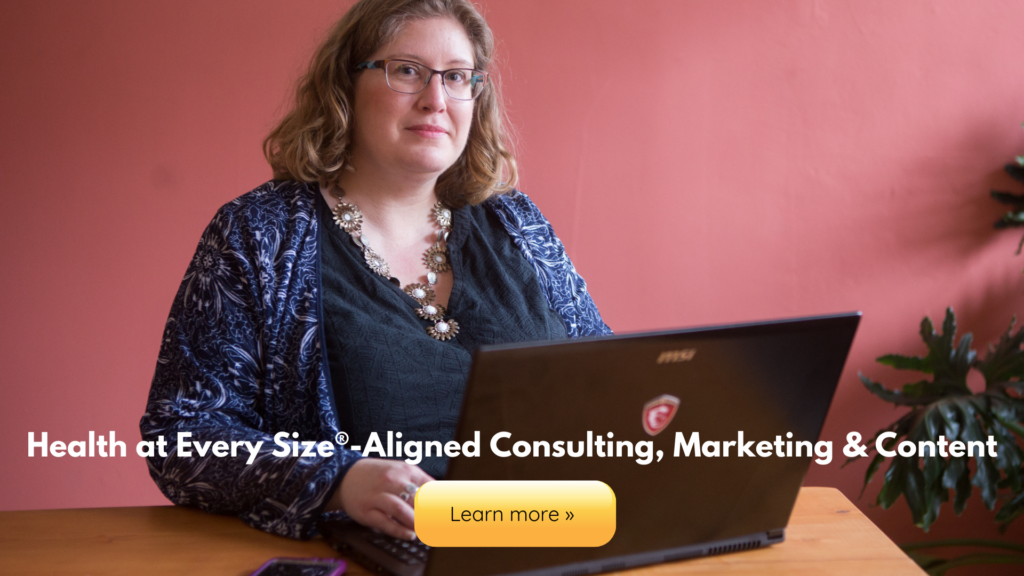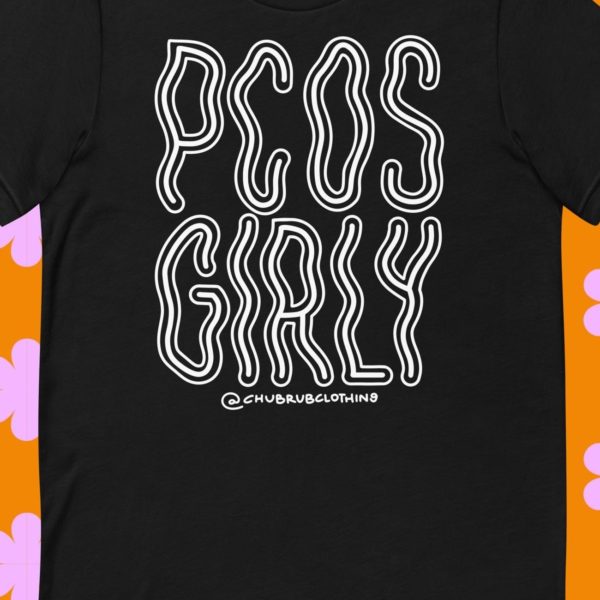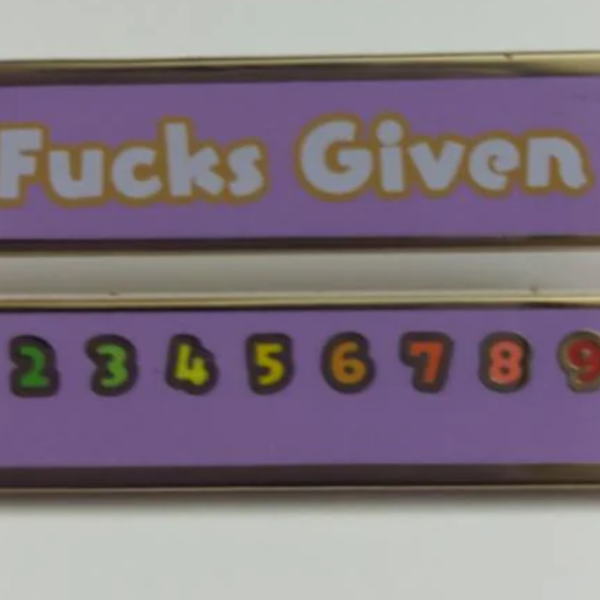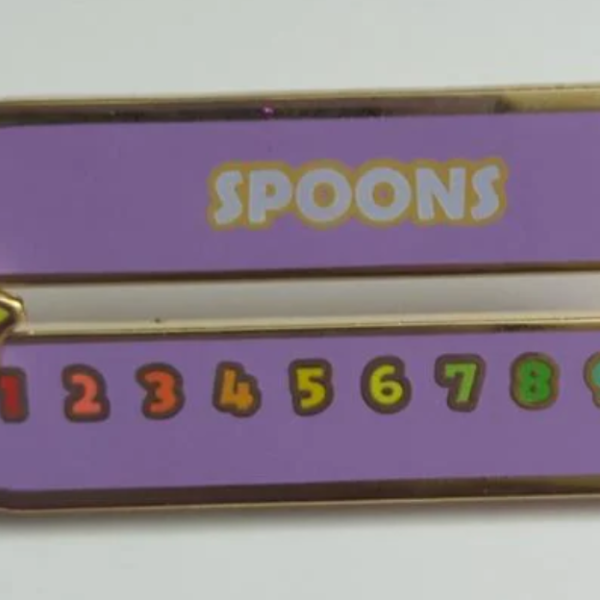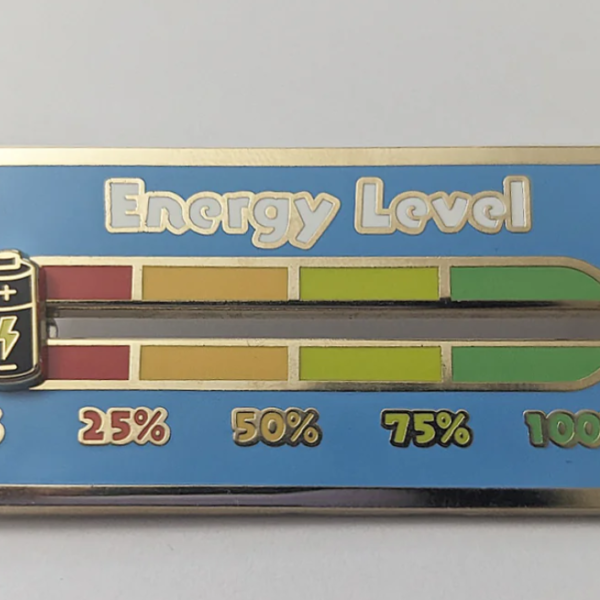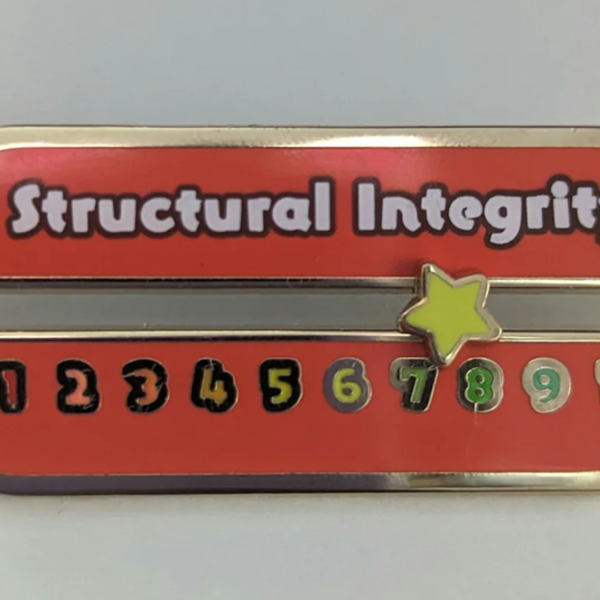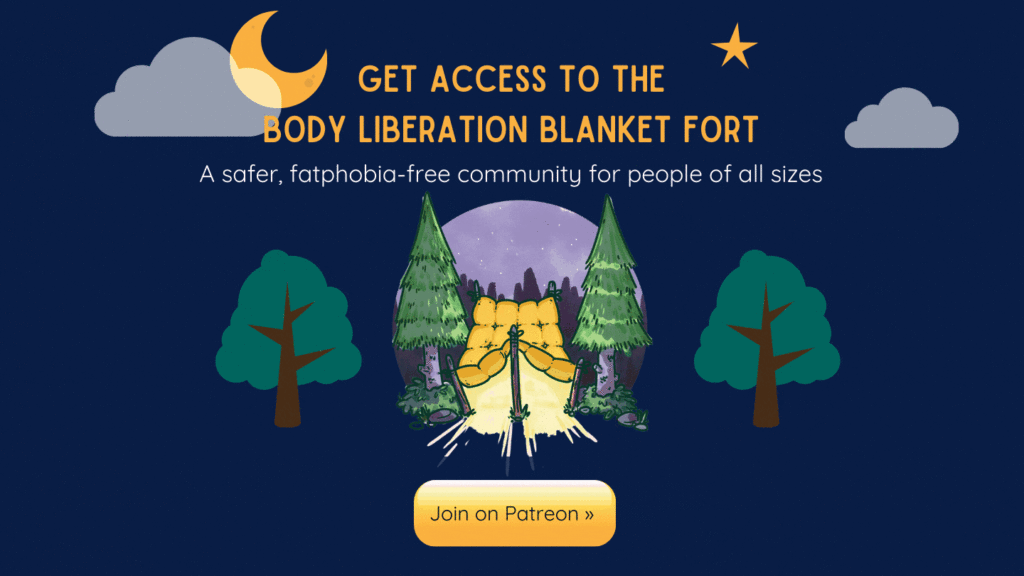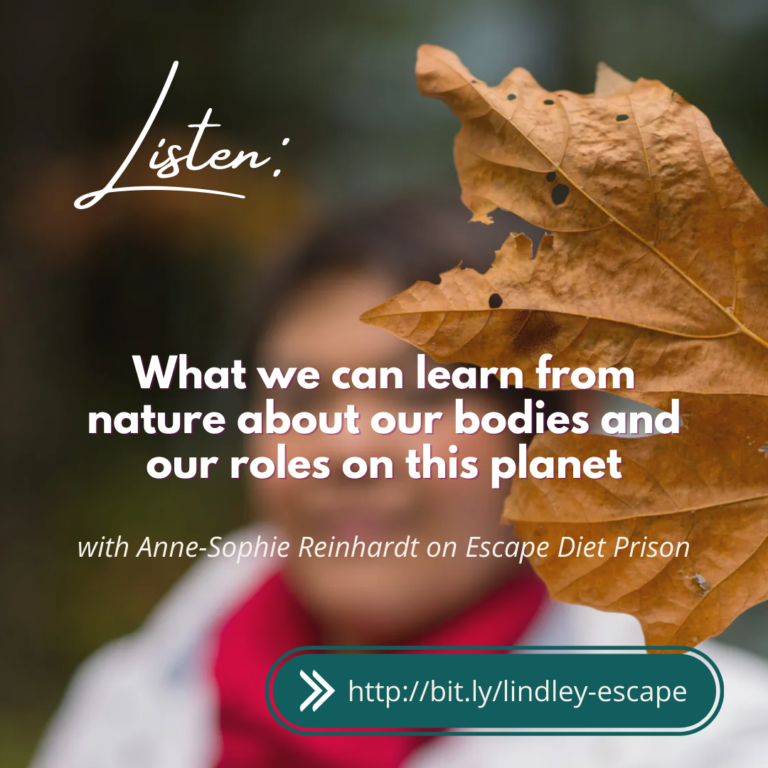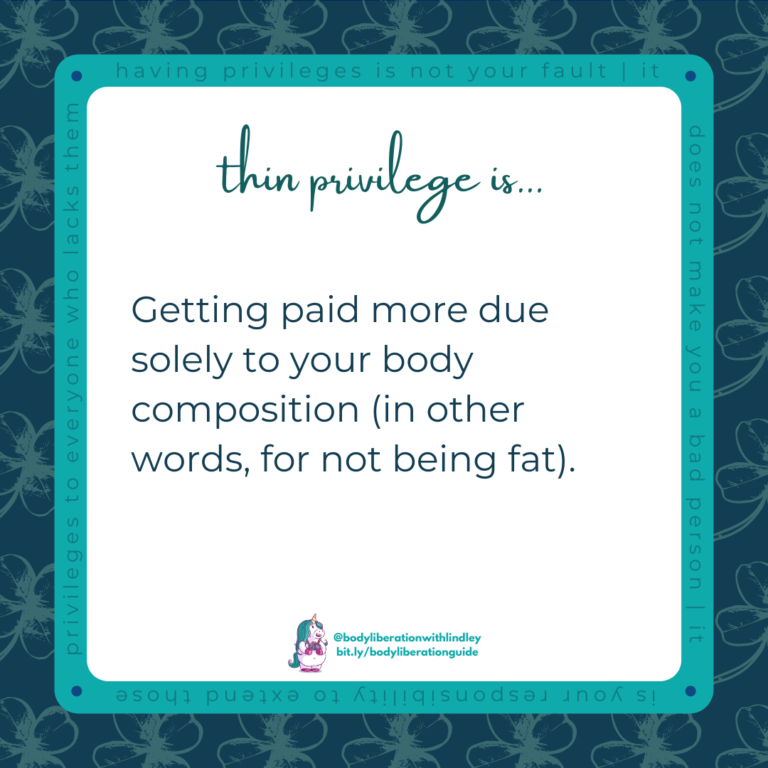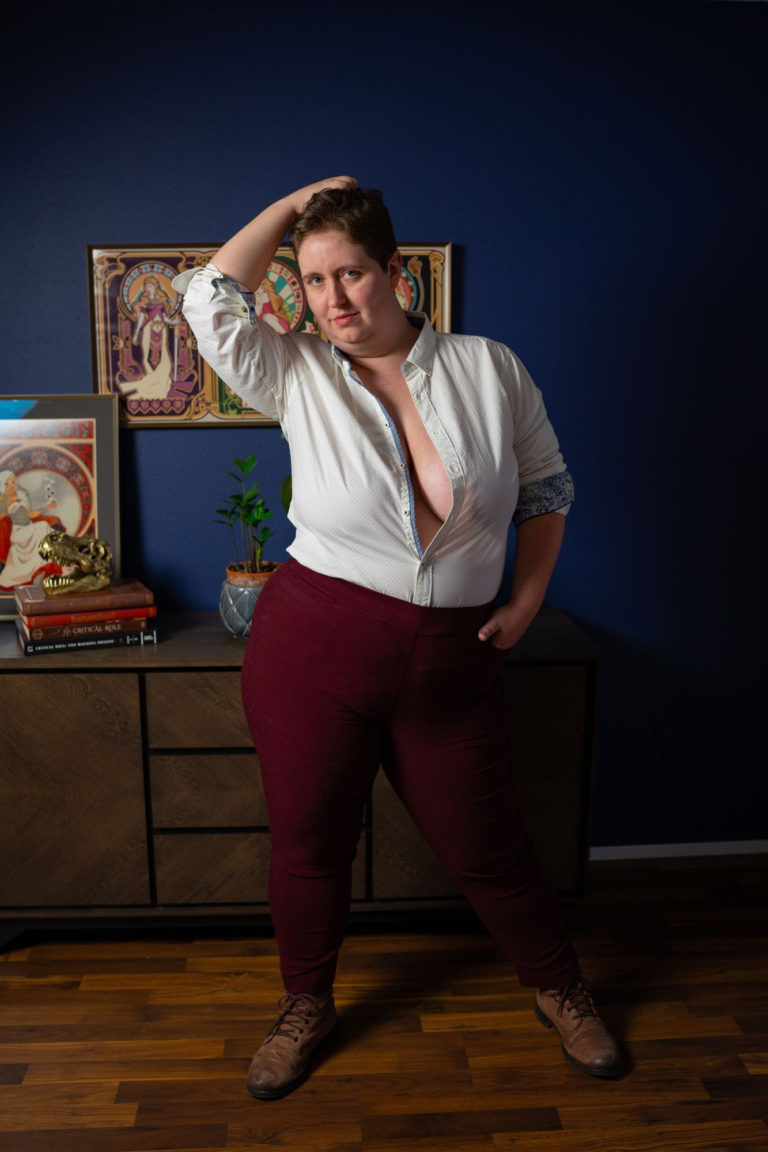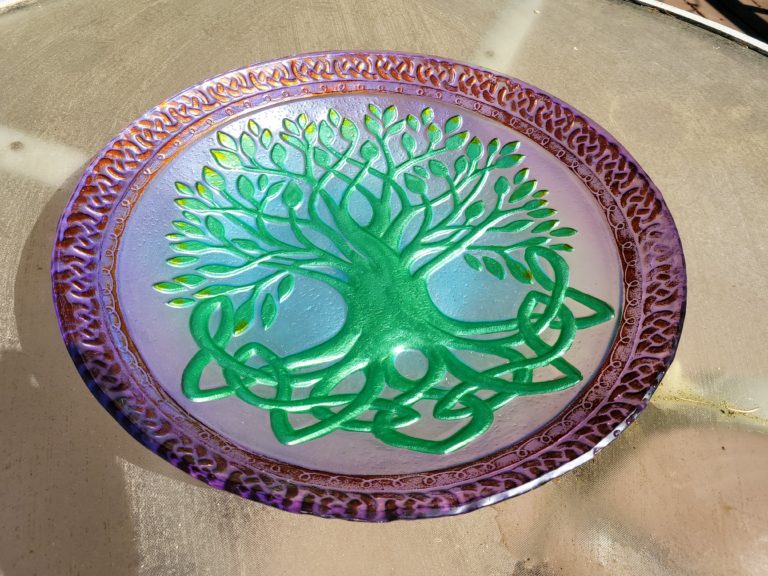LISTEN: Lindley on PowerPivot with Leela Sinha (with Transcript)
So many of the dynamics around bodies, weight and worth are really about power, and it was fascinating to dig into those power dynamics with Leela Sinha, host of the PowerPivot podcast. We talk about being unafraid of power, claiming your power, whether vulnerability offers or contains inherent power, and the power in anger. You can listen to the episode and read the transcript below.
Transcript
Intro: This is PowerPivot with Leela Sinha.
Leela-Sinha: Hello, everyone, and welcome to PowerPivot, the podcast where we talk about ethics, leadership, power and community. We’re having these conversations out loud in public because power can corrupt, but it doesn’t have to be that way.
Today’s show may contain references to erotic, bawdy or sexual subjects to make your decision about where and how to listen appropriately. Today’s guest is Lindley Ashline.
Lindley Ashline creates artwork that celebrates the unique beauty of bodies that fall outside conventional beauty standards. Lindley is also the creator of Body Liberation Stock, and the Body Love Box, a monthly body acceptance subscription box. She lives outside Seattle with her husband and two feline overlords, and you can find her work and get her free weekly Body Liberation Guide at bit.ly, that’s B-I-T dot L-Y, slash BodyLiberationGuide.
Welcome, Lindley.
Lindley-Ashline: Thank you. It’s so nice to be here.
Leela-Sinha: It’s such a pleasure to have you here. I’m so excited and I’ve been having such a great time with these interviews, and I’m so looking forward to our conversations.
So why don’t you start by telling us a little bit more about body acceptance and your work, and I know it’s had a couple of evolutions, and so folks might know you from different aspects of your photography work or other work online, so why don’t you give us a little deeper introduction to you?
Lindley-Ashline: All right. I’ve been running my own business since 2015, and I have had a couple of iterations. It’s been such an interesting thing to work through as my own body acceptance journey has progressed, so has my business. So I started out in 2015. I came from the corporate world. I have a marketing and social media and writing background for my corporate career. And I have been doing photography for a really long time, taking nature photos, which I still very much love to do. But when I struck out onto my own business, I knew I wanted to work with people.
And so I had started learning portrait and boudoir photography. And I came into my business also with a body positive background. You know all bodies are beautiful in their own way, and you know all bodies are good and worthy bodies.
New at Body Liberation Stock
And so I already came in knowing that I wanted to work with people in larger bodies because those were the people that weren’t seen in other photographers’ work. And so I felt it was like an under-served market, and it’s also with my own background in the fat acceptance world and the body positive world, I knew that that was the market I wanted to serve.
So I came in focused on this type of body, but the way I talked about those bodies and showed those bodies was still pretty normative. My business name was very soft and my messaging was very soft, very—all bodies are great bodies-based, which is great and fine, and that was what I needed to be saying at the time, and that was what my clients wanted to hear at the time, and what they needed to progress on the journey.
But as I have moved deeper into, what I call body liberation, body acceptance, fat acceptance, and not thinking just that—all bodies are beautiful and all bodies are worthy, but that the bodies that we ignore in mainstream media, in mainstream TV shows and magazines, and Instagram accounts, the bodies that you don’t see have uniquely beautiful aspects and uniquely beautiful qualities, and are worthy of being shown not just because they’ve been ignored, but because those bodies have their own beauty that is specific to them.
And so as I have moved through that journey of my own, and been more deeply involved in fat acceptance and body liberation. My business has evolved too.
So the first year that I was in business, I had a business called Sweet Amaranth—amaranth like the green. And it was — like I said portraits and boudoir photography, and a very soft message, a very easy message to digest.
The next year, in 2016, I added on a stock photography business because I had seen that the mainstream stock photography agencies like iStock Photo and Getty weren’t showing larger bodies either. And stock photography, if you’re not already familiar with it, is the photos that people use in their marketing and advertising because most businesses don’t have the budget to hire a photographer and have a photoshoot just for one marketing campaign, so they buy stock photos.
And all the stock photos show only thin bodies, and mostly thin, white bodies.
And I said, “Okay, here’s another market niche I can fill.”
I can do that. I can provide stock photos of large people.
So I started doing it, and that was a separate business called Representation Matters. And I felt like those two, the client photography business and the stock photography were different audiences, so I kept those as different businesses. And eventually, what happened is, as both of those things grew, both of those businesses, it became too much for one person to keep up with because in 2018, late 2018, I added on a third business called the Body Love Box. Because once again, I had seen this market niche that nobody was filling of body positive subscription boxes that were not just body image-based, but again, focused on larger bodies.
And I’m still the one, the only one, who’s filling two of those three market niches, but running three businesses was just too much.
And so last year, I started this process of smooshing everything together. It was very stressful because when you have been used to splitting yourself into so many pieces, you can become — or at least I became really afraid that putting all those pieces together was going to scare everyone away because if you had come in through Representation Matters, through my stock photos, you weren’t seeing half-naked fat ladies. On my social media feeds, you were seeing stock photos. And if you came in through Sweet Amaranth, that’s through my portrait and boudoir photography, you weren’t seeing stock photos in your Instagram feed from my Instagram.
And so I ended up smooshing those two things together. So now, I have the Body Love Box as one business, and then all my photography is the other.
And it’s been such a fascinating process because people have self-selected out through that because, again, as my business has become a little less body positivity-based and a little more body liberation or fat activist-based, that has scared some people away, which is fine.
And also, as my businesses have combined, there have been some people who self-selected out because they don’t want to hear about stock photos, or they don’t want to hear about boudoir. And that’s fine too because the more coherent that I have become in my message and my goals, the more people have come and found me to replace the people who have self-selected out.
And so the people who are now in my sphere are really into everything I’m doing, which is a really great place to be.
Leela-Sinha: Yes, that’s fabulous. And in the marketing world, there’s a lot of talk about ejection seats and red velvet ropes, and that’s basically what you’ve set up. You said, “Listen. This is me, this is all of me, these are my values, and if you like that, I want to do business with you. And if you don’t like that and don’t want to do business with me as a result, that’s cool. There are lots of other people doing stuff. Go find one of them.
Lindley-Ashline: Exactly.
Leela-Sinha: So I have two directions I want to take the power conversation. One of them is that. How has that experience of claiming your full identity in a single public sphere? How has that experience changed your relationship to your own power?
Lindley-Ashline: It’s actually really changed it drastically because as I was creating, particularly, the initial framework of my business, the initial form that that took, with the photography, I was providing a service, and the service was the central aspect of the business. And then way back in the background was me as a person. So it was, sort of, this body positive photography, and then way in the background, provided by Lindley Ashline.
And when I created the stock photos, it was representation matters diverse stock photos, and way in the background was, created by Lindley Ashline. And the same thing for the subscription box.
So as I started consolidating these things, it forced me to really think about, even more so than I had in the past, what are my values as a person, what are my boundaries, what do I want this to look like, how do I interact with the world, and in this process, I as a person, became the central aspect of these businesses because all along, my activism had been taking a more and more central role. And bringing these businesses together united those activism aspects where now, I am the central aspect of these businesses, and I provide various services, as opposed to there being a service that is well as provided by a person. Now, here is me as a public entity, and here are all the services that I provide.
Also, I have recently started offering some consulting and some writing and editing services and things.
And so particularly consolidating websites forced me to be like, this is me and here are all the offerings that I have. And it forced me to acknowledge my power and my role as an activist and as a leader. Because before, I could hide behind these various businesses and say, [unintelligible 00:10:11] background waving at you from behind a tree.
And now, it has forced me to — the easier it is to find me as a person. Because if you came in, say, to buy stock photos, you could come in — in my previous incarnation of that business, you could have come in and, I had something on my about page about me as a person. But you could come in and buy stock photos and note ever realize that there was just one person behind it all.
But now, you cannot escape that you’re interacting with me.
It’s been a boost for my self-esteem, and that I put myself front and center, and people still like me and want to interact with me. But it’s also forced me to claim that power. Because I have that power but I had deluded it in all these different activities. And now, it has forced me to centralize that power and say, yes, this is me. This is what I do. Here are my boundaries. Here are my beliefs. This is my power.
And as people respond to that, it has become clear that they see me as a leader and as a powerful force which is a little scary. I’m just a girl on the internet, you know?
Leela-Sinha: And you’re not just a girl on the internet. Because the minute that you step out there and claim the fullness of your identity, you start to become a public persona, as well as a girl on the internet.
Lindley-Ashline: Right. And that has forced me to, from a power dynamic standpoint, it forced me to claim that power, but also to become responsible for that power. For example, my personal Facebook is also one of my business presences because I have not been willing and have the attention span to not put anything business-related on my personal page.
And so I have to be aware that even though this is my personal space on the internet, if I make a post public, the whole world is seeing that. And many of the people who are my Facebook friends are there because they came in through one of my businesses.
And so I have to be very careful how I use that leadership and that power now because if I dash off, and it happens sometimes, and people call me out, as they should, and I try to listen and learn from these things. But if I make a really ill-advised post on my personal page, there are a couple of thousand people that are seeing that. And I am not speaking even in my personal spaces, if those spaces are public, I’m still speaking as a public person. I’m not having coffee with a friend. I’m speaking out loud on the internet.
And so my words carry more power than I am used to having whether I intend to use that power or not.
Leela-Sinha: So once you recognize that you have that power, then there’s the question of, where do you put it? Where have you decided it’s important to put that power?
Lindley-Ashline: Well, for me, it has been very easy because I have been focused for a decade now, even well before I started from a business standpoint. Even well before that, I’ve been very focused on body acceptance, fat acceptance, body liberation. So for me, everything stems from that, and so my goal is always, how am I going to use my power to help people be okay with their bodies? How am I going to use my power to help change culture? How am I going to use my power to help change the visual world, or the images that we’re all surrounded by? How am I going to use my power that way?
Because there are so many, especially now, that we’re all on the internet, and we’re all bombarded by 10,000 worthy causes every week. There are so many things out there that we can be involved in, and just so many causes that we can participate in. And nobody can do it all. So for me, this is my lane. This is where I already have a certain amount of influence. This is where my work can do the most good. So this is where my power lies and where I’m going to use it.
And of course, that’s going to be a personal decision for everybody. Some people may find more satisfaction in spreading themselves across five or six different causes. But for me, everything comes back to the one.
Leela-Sinha: So where have you been most surprised to discover you have power?
New in the Body Love Shop
Lindley-Ashline: I think I have discovered, I have been most surprised by discovering power in my anger. Because I’m used to thinking of body acceptance-related power as lying within the influence of community and within body positivity as a movement.
Folks like Corissa Enneking of FatGirlFlow on Instagram and BodyPosiPanda, and these people I’m acquainted with many of them. They’re all fantastic people, and they’re doing great work in the world.
But in general, their work is very — I don’t want to call it fluffy because it’s not necessarily, but it’s very relatively mainstream, and it’s generally very positive. There might be a moment of frustration in somebody’s post. But in general, these folks are making body acceptance accessible to more people via relatively light conversation, relatively light topics, like plus size fashion, which is a very important and not necessarily even a fluffy topic. But it’s very mainstream and accessible.
And so part of why it took me so long to come into my power, I think, as both a business person and an activist, was because I was trying very hard to emulate that. I felt like I couldn’t be publicly frustrated or angry or sad or too vulnerable past a certain point because then people were going to be so uncomfortable that they would walk away rather than listen to my message.
And a couple of years ago, I just got angry, and I haven’t stopped being angry. And I know I don’t sound angry right now, but a lot of my writing is from a place of anger. And that is where I’m currently finding a lot of power, partly because it’s not — people are intimidated and they disapprove and they get angry when women are angry. And so it could be a very uncomfortable place to set for me and for other people. And I’m finding that that discomfort is where my power is lying because I’m forcing people to think about things on a level that is a different area from — I’m more mainstream, body positive influencer, it means that I’m able to access some very powerful writing from within myself because I am finally able to access that anger.
One of the most surprising things about the surprising thing is that it’s giving other people power. I’m seeing other people, and people come to me — sometimes they come and tell me and sometimes I just see them do it in their own lives. I talk about something that I am angry about. I am angry about my body being marginalized. I’m angry about oppression. I’m angry about lack of access. And that anger is pushing me to write about it, and that writing is pushing other people to feel safe and supported in their own anger, which of course, is part of what then gives me more power to continue accessing those places myself, to continue making that difference.
And so it’s been so surprising that this area of anger has not felt like something that was going to go well for me if I started writing about it. Again, I just felt like I was going to lose my entire audience and that nobody would want — nobody wants to talk to the angry lady. She’s scary and she makes me feel bad.
But that hasn’t been how it’s happened at all. People has been — if I write about I’m angry at our health care system for refusing to give people with larger bodies options besides unsustainable weight loss as treatment, I’m really angry about that. And I write about being angry about that, and then that gives somebody else the courage to go to their doctor and say, “Okay, what would you tell somebody in smaller body about this condition?”
Or if you want me to lose weight so that I can get a knee replacement, fine. Show me the five-year study where people have lost a significant amount of weight and kept it off for five years.
And I’m open to that diet. And the thing is that that diet doesn’t exist because we don’t have a way to make larger people smaller in the long term.
But my power in being able to access the anger myself has given other people permission to set boundaries in their own life, and it’s not necessarily that I’m making them angry, but me using my power is giving them power. And that is so cool to see happen in the world. And it’s not something I expected at all.
Leela-Sinha: So it’s interesting for me that the place that you have found the power is in anger, which is so prescribed for all kinds of marginalized people. Certainly people of color, certainly people raised or socialized as women, certainly fat people. There are so many places where you’re not supposed to be angry, and that’s where you found the most power. Do you think it’s more because — and you can say both, but do you think it’s more because it’s such a pushback to what the cultural expectation is, or do you think it’s something else?
Lindley-Ashline: I think it’s both. I think partly because it is such a pushback against these cultural expectations, and partly because people are ready for it. We’ve had so many people in the last five years, ten years, come into body positivity. And they’re like, “This is great, but I’m ready for something more. What’s the next step?”
Having access to fashion that I love is awesome, but then when I go to the doctor, the doctor doesn’t care about my cute skirt. So how do I handle that?
And so they’re looking for the things that I’m talking about, and intuitive eating, health at every size, radical acceptance, radical self-care. People are ready for the next step. People who have come in and they’ve been listening, and they’re ready to move forward further then — I don’t want to say just fashion because again, fashion is very, very important. But again, it feels more accessible, and then they’re ready for the next step.
And when I talk about me as a person, my ability to talk about these topics, and to be angry, I always want to emphasize that I have a lot of privilege that allows me to be publicly angry. I can be angry because I’m a cisgender, straight, white woman. I’m in a long-term, stable marriage. My husband supports me while I build my business. And he works a corporate job. He works for a bank. I have a roof over my head.
Having a small business is not easy financially, and I’m totally killing my retirement, but I’m sitting in a warm room in the winter, with a roof over my head. I have space to work in. I have space to do my photography. I have time. I have time to do this thought work, and to do this, to record this podcast episode.
I don’t have kids. And so that gives me more time, and emotional energy, and emotional ability to do more emotional labor for other people.
I have all these privileges and so those things give me power too.
I get a lot of crap on the internet. I have my comments partly shut down on Instagram because otherwise, it gets flooded by trolls. But I also have an emotional support network that I can go to my therapist next Monday and say, “I had the worst troll and they said blah-blah-blah.”
I have the support network that emotionally, financially, structurally that allows me to do this work, and so there’s a lot of power in that too. I also have a part-time corporate job, but I’ve had this part-time corporate job for four years. If they were going to be horrified about my other activities, they would have been horrified by now.
And so all of these things combined to give me a lot of power, and the ability to use that power. And so I always want to be clear that I’m very well-supported in this, and that when I’m giving other people power to use their voices, it is because I have these advantages that allow me to.
Leela-Sinha: So let’s shift gears a little bit. I am interesting in hearing what you have to say, what your thoughts are, on the power of visibility and representation. Obviously, your business has addressed that in a couple of different ways, and it’s obviously a really important issue. We know that representation matters. We know that it matters in all kinds of different context, and that it matters to kids, and it matters to adult.
One of my favorite stories to tell in Unitarian Universalist churches is the story about the little kid who comes up to their parent and says, “I have a question.” And the parent says, “Yes?” And the kid says “Can boys be ministers?”
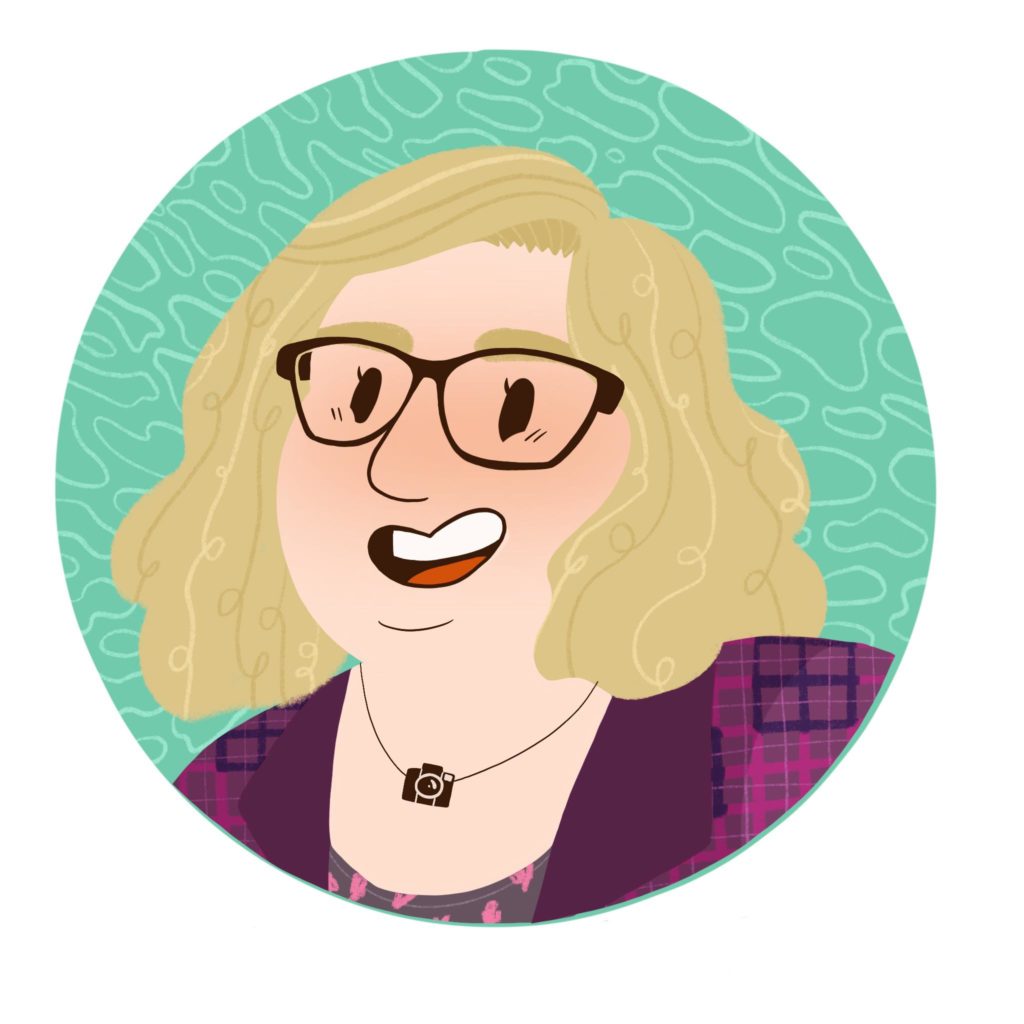
Every Monday, I send out my Body Liberation Guide, a thoughtful email jam-packed with resources on body liberation, weight stigma, body image and more. And it’s free. Let’s change the world together. Subscribe »
Because we’re over 50% women in our ministry and have been since the 80s.
And so they’re a lot of little Unitarian Universalists out there who have never encountered a male minister and don’t know if that’s a thing.
Lindley-Ashline: That’s amazing.
Leela-Sinha: Right? And so representation matters. It matters so deeply in levels that we just can’t even comprehend, and for our kids, of course, for adults as well, but often the naïveté of children is the best place to highlight that.
So you’ve been working on this visibility representation engagement with being fat, with, to some extent, people of color with representation matters through your stock photography. So tell us a little bit about what you’ve noticed or what you think the relationship is there between visibility and power.
Lindley-Ashline: There are so many layers to discuss. I’m trying to just pick one to start with. My personal story about visibility and representation is one of the reasons it took me so long. I wanted to be a photographer professionally for pretty much my entire life. And I didn’t do it — I didn’t even start attempting to do it until I was 36 because I have never seen a fat photographer. I didn’t even know that such a thing was possible.
Of course, it wasn’t like I had seen the bodies of that many professional photographers before anyway, but I wasn’t necessarily seeking out. I wasn’t Googling professional photographer and then looking at images [unintelligible 00:25:46].
But I had this idea in my mind that had been accumulated for a lifetime of media exposure or in cultural exposure of what a photographer looks like. And that photographer was thin. The one in my head, [unintelligible 00:26:02] professional photographer, the thin and extremely elegant and socially aware.
I don’t know. Just these things that I had picked up from the media over time. And it literally did not occur to me that anyone would want to work with a fat photographer. I also had the same image in my head of, what if I start photographing weddings? Because that is one of the most — if you think about becoming a paid photographer, that’s one of the big entry points for people. It’s one of the big obvious ones. It’s like, oh well, of course, you photograph weddings.
I ended up not going to that route because it turns out that I don’t like doing weddings, so I do other things. But I would much rather work one on one with a client, and in my work, it’s a little bit coaching, a little bit photography where people come and work with me. So that works better for me anyway.
But I had this image of me photographing weddings with my huge body crashing around into things. It’s a little vulnerable to talk about this because particularly, as someone whose work is in body acceptance, but until I was stable enough in my own body acceptance to be like, no, I’m a reasonably competent human being. I’m not going to knock over their cake with my butt.
But that was a fear. That was a fear that I had that who would hire a fat photographer that would just bump into people, and all these negative stereotypes we have about fat bodies.
So becoming a photographer was very scary to me partly because as someone who does live in a marginalized body, I knew that there were going to be extra challenges. But also, I didn’t have any examples.
And now, even four years later, I know so many photographers in big bodies, so many. They’re all over the U.S. They’re all over the world. Most of them are body positive in some capacity. And so now, if you want to go find a body positive photographer to work with, I am certainly not the only one. There’s probably one within a couple of hours of you, wherever you live, at least in the U.S. I do have a U.S.-centric viewpoint because that’s where I live. So I don’t know too much about the rest of the world like photographer coverage on the body positive level.
But that’s my personal — I just didn’t have an example. I didn’t know what that might look like.
And so again, filling these market niches has been about, I have a business, it’s also about income stream. If I have less competition in a space, like in the stock photos, then I have a better market advantage. That’s just business.
But it’s been at least as much about changing that visual conversation, and using the power of my background in body acceptance to say, okay, who are the people who are not being shown? How do I get them in and make them feel safe enough to represent people like them?
Because there is — as a photographer, who is creating visual culture, especially as I am the only one in the world right now who is creating commercial use stock photos that are publicly available, that are ethically produced — and when I talk about ethically producing photos, I’m talking about the models get paid. Right now, I give my models the option of choosing photos as their compensation or a living wage, an hourly, monetary wage. They can choose one or the other. A lot of them do choose photos, but having that monetary wages is so vital because it means that people who would not be able to come work with me because that’s time they’re giving up. It gives them — that might by the way they eat today.
Because when I’m working with marginalized people, a lot of times, there’s multiple marginalizations. It might be a black trans woman who comes and works with me. And my offering her a monetary wage makes a difference between her being able to come work with me or not.
And so the models get paid a living wage. My contributors who contribute to my stock photo collections, other photographers, other artists, they get paid. They get paid around 50% of the money when their photos are sold, which is totally unheard of. Nobody else does that. Usually the royalty rate for a stock photographer is around 30%. And so I’m trying to make sure that they get paid a living wage for their work.
And then I try to get paid a living wage for my work. So I don’t give away my photos.
Leela-Sinha: Shocking.
Lindley-Ashline: Yes, I don’t do the free — in my newsletter, occasionally, I will send out a couple of free photos, my Body Liberation Guide newsletter. I will occasionally send out free photos that way as a reward for being a part of my space there. But I don’t give away my photos. I don’t put them on Unsplash, and I do think free stock photo resources are important because as small business owners, we just don’t always — we don’t always have the money to buy paid stock photos, plain and simple.
Leela-Sinha: Right. It gets people in the habit of using legal photos instead of stealing people’s work.
Lindley-Ashline: That too. There are legal free resources out there like Unsplash, and then Pexels and Pixabay. But yes, it gets us in the habit of appreciating the resources that other people are creating and valuing those resources by trading our resources for them.
So when I talk about ethically produced, that’s what I’m talking about. But I’m the only one on the planet doing that. Do you know how much power that gives me? I mean, I sound a little power mad. But it’s a huge responsibility. It’s terrifying.
Leela-Sinha: Careful you don’t start monologuing.
Lindley-Ashline: Right. [unintelligible 00:32:02] why I’m here.
Leela-Sinha: Touché.
Lindley-Ashline: Leela tells me to come on her podcast and then says I can’t monologue. At any rate, it’s a huge responsibility because that black trans woman who comes and works with me is not only is she putting her image in my hands, but there just isn’t a whole lot of representation of people like her. And so if I photograph a woman who is a cisgender woman, cisgender, straight, white woman who is maybe a size 10 in U.S. clothing sizing, that representation is one of many, many, many, thousands and thousands of representations of people like her.
If I photograph a fat, black, trans woman, and put that fat, black, trans woman out there, how many stock photos are out there with fat, black, trans woman? I’m sure there are some, but not very many. And that is really where the power and the responsibility are really closely tied together because if I photograph that fat, black, trans woman in a way that is disrespectful or that perpetuates stereotypes or is in some way as some kind of problem, then I’m perpetuating that problem out into a space that does not contain very many alternatives.
And the same thing goes for my private photography clients too because they are gaining power by working with me in that they are seeing themselves respectfully represented. But as the photographer, again, I have no so much power there, and I have to be so careful how I’m using it, because if I say the wrong thing to somebody while I have a camera pointed at them, and they are — maybe they’re nude, I can do huge amounts of damage. So I have to be really careful with everything that comes out of my mouth.
Sometimes as a photographer, when you are — say, you’re posing somebody, and sometimes you just do something dumb and it doesn’t work, not every pose is going to work all the time, maybe the lighting is wrong. It might not have anything to do with your subject. Maybe the lighting is really terrible.
And I cannot say, “That’s not working. Let’s try something else,” and not clarify that it’s because the lighting is wrong or whatever. I cannot ever let a client think that the problem lies within them or their body because it’s such a — particularly, when you’re working with marginalized people. And of course, being a marginalized person doesn’t automatically meant that that person is fragile or needs to be handled pretty delicately. Because marginalized people, by the very definition, have to be strong to survive. But I have so much power and that relationship can be so fragile because if I do one thing, I can damage their self-esteem for years.
Again, it’s not that I go around and tiptoe, but I have to be very careful with that relationship and just hold that relationship very gently and be very aware of what I’m doing.
Leela-Sinha: Yes, absolutely. I think being aware of the power of holding the camera and then framing the gaze, there’s a whole piece that’s just about that. And I took a fascinating class in college at one point that was, theoretically, actually about lesbian literature, but the professor was a real film buff. And so she had us watching one film a week in a 101 level class.
Lindley-Ashline: Wow.
Leela-Sinha: She had us watching one film a week and she wanted us to do these complex film analyses, and none of us had media backgrounds. None of us were in media studies, or almost none of us. And so we were floundering. But one of the things that she drilled home again and again and again — and again, this was specifically about lesbian literature, and this — well, let’s see. When was I in college? This was like 1994-ish. So this was a while ago. But she was emphasizing how important it is who has the power of the gaze, and who is the subject of the gaze. And the power variation there and what happens when you reverse the gaze.
And so I think about that a lot of in the context of photography because it takes an enormous amount of groundedness and self-possession to seize the power of the gaze from the gazer.
And most people going into a photo session are not going to have even the media analysis to know to do that, much less the skills and tools and personal grounding necessary. And at least for me, being a marginalized person, it has taken me — I’m in my mid-40s, and it has taken me this long to even start to think about ways in which I might claim the power of being gazed, of being the object of the gaze.
That did not feel like territory that I could enter into in any way until very recently.
Lindley-Ashline: Yes, and I think in general, the people who come in to work with me are even near that level of media criticism knowledge. Most of the people who are coming to me, some of them, they haven’t seen themselves in years. They’re terrified to take a selfie because they don’t actually know what they look like.
One of the folks –I won’t name her because I don’t have permission right now, but one of the folks that I worked with a while back, I took her headshots. She is a performer, a part-time, paid, onstage, on pretty large stages, a fairly high profile regionally performer. And she hadn’t seen herself in years. Other than maybe in a mirror. Maybe. She didn’t have any idea what she looked like.
She was in recovery from an eating disorder. She had gained a pretty significant amount of weight. And she was working on that and coming to terms with that with some professional assistance. But it didn’t matter because she might be ready intellectually at that time that we worked together to accept that her body had changed. But she wasn’t ready — had not been ready to see it until she came and worked with me. And it was just headshots.
So the least vulnerable photography situation because headshots are quick. They only take 20 minutes. And you’re fully clothed, and it feels more like a professional setting than a more personal, vulnerable one. Most of the shots are just from the bust up. That’s one of the least vulnerable situations, which was good. It was a good place for her to be.
And it was a little bit of shock to realize that when she received those photos, that was going to be the first time she had seen herself in years. And again, for someone who’s also a performer, also having to deal with how her body had changed moving on the stage is part of this too. My body is larger than it used to be. It moves completely differently. How do I adjust to this?
Again, with the power dynamic of, I’m in charge of how this person is seeing themselves for the first time in years, there’s a lot of power there. But the larger point is that a lot of the people who are coming and working with me, either they have not seen themselves in a while or they’ve never seen themselves in a professional photo, which is very different from a selfie or maybe having a friend take a photo.
Depending on the person, a lot of the people who come in, they’re not a level where they’re really thinking critically about how am I going to look? But they know how they want to feel.
So that’s where we start. When I have a client sign up, they take a survey, and I ask them, how do you want to feel? Do you want to feel cozy or glamorous, or sexy? What do you want to feel both when we’re taking the photos and also when you look at the photos?
And then from there, I feel like I can guide them a little more because these end up being exercises in seeing yourself. And some people when they come in — my photography studio is also my home. And it’s really great because it helps me — I have an anxiety disorder, and working out of my home helps me manage my anxiety around the whole world by keeping me in a familiar space. But it’s also very cozy and comfortable for the people who come in. So it’s a really great advantage. But I have a number of different rooms that we can work in.
And some of the people who come in, they don’t even have any opinions. They don’t have any opinion on whether I put them on the floor or whether we go in my dining room, which has a nice wood floor, or we go upstairs and I put them on a bed in the guest room.
They don’t have any opinion because they’re not used to thinking about their bodies enough even to know what they prefer, or the kind of environment that their body is comfortable in. Because particularly for marginalized people, but to a certain amount, for all of us, it can be very easy to separate ourselves from our physical bodies.
And so the people who come and work with me, they’re starting to reclaim even that little bit of power of, how do I want to be seen?
And so part of my job is to guide people through that. Now that said, sometimes people come in, and they know exactly what they want, and what setting they want to be in, and how they want to feel. It’s definitely not universal. But part of the reason that I feel like having someone really grounded in body acceptance, to guide people through that, is to that they can start figuring out, how do I want to see myself? What do I want to feel? I don’t even know.
And that guidance — and again, that’s about power because I have the power of that knowledge. And by guiding them through that, coaching them through that process, and making it clear that they’re allowed to have opinions, they’re allowed to say, “No, this isn’t comfortable.” They’re allowed to say, “No, I’m not going to get on my knees because my knees hurt.”
New at Body Liberation Stock
But sometimes people will come in and I’ll say, okay, are you comfortable getting on your knees? And they’ll be like, yes, because they don’t want to offend me or disappoint me. And then they get on their knees, and I could tell that it hurts, and I make them get back up.
But holding a space where people have that power to say, “This is how I want to feel. This is what I want to do,” and having somebody be in the center of care, but also in an environment where you are the center of attention, you are the center of care, and you get to make decisions as far as you want to and are comfortable to, is really empowering, I think.
Leela-Sinha: That’s an interesting phrase—the center of care. Where does that come from?
Lindley-Ashline: I don’t want to say it’s original to me, because I might have seen that somewhere, and not remember that it’s from a particular person. I don’t remember having seen that anywhere before. But I actually started thinking about that way a couple of months ago. I was having a conversation about Reiki with a friend. And my tolerance for Woo is relatively low. My friend’s tolerance for Woo is also pretty low.
And we were talking about Reiki in the context of a third person who wasn’t involved in the conversation, who had been advocating for Reiki as a replacement for western medicine.
And we were talking about being ticked off about it, essentially. And at the time, I was trying to figure out why I was annoyed about that. And beyond, I don’t think that alternative medicine is a one-to-one replacement for western medicine. But I was saying at the time that just being the center of somebody’s attention for an hour, just having caring hands on you, being that center of touch and caring and attention, I think that is something that many, many, many people don’t have access to I our daily lives.
I don’t know whether Reiki works the way it’s supposed to. I don’t know. I’m agnostic. That’s out of my lane. I’m staying out of it. But I do think that there is a tremendous amount of value in being a center of care. Someone is holding you at the center of their attention for that time. They are caring for you in whatever capacity that means at that time. And again, it’s a space where you’re allowed to make decisions. That feels good. That doesn’t feel good.
Maybe you’re being touched.
So many people are touch-starved, so something like a massage, how many people in their day-to-day lives have an opportunity to be touched with care for any length of time?
And so that was how I started thinking about being the center of care. Not just — I had started seeing a new doctor recently, a health at every size-aligned doctor. And every doctor that I had ever had in my life previously, obviously, I felt like their patient or their client. I would go in, and we would talk, whatever. They may or may not listen to what I’m saying. They may or may not want to treat me with anything but attempt at weight loss.
It was a transactional relationship where it’s clear I’m here to receive a service, you have provided a service.
But seeing this health at every size doctor, I felt like the center of care. I was there. We stayed as long as I needed. For the first appointment, I think we had scheduled 40 minutes or 45 minutes, I was there for an hour and a half. I didn’t realize that and then later, I felt bad about it because I don’t know whether she got to eat lunch that day.
But we sat down and she gave me her full attention. She wasn’t checking her phone. She wasn’t looking off into space. She wasn’t distracted. She gave me her full attention. It was clear that she was listening and processing what I was saying. Every time I thought I was done, she would say, “Okay, is there anything else you want to tell me?” And there always was every time. I would think I was done, but having someone — that’s what I’m talking about when I’m talking about holding somebody in the center of care. Full attention, a touch as required for whatever’s going on, being truly listened to and truly believed and accepted. How often do we have that in our daily lives?
Leela-Sinha: Not very often, especially not for marginalized.
Lindley-Ashline: Right. And so for me, that’s the center of being the center of care, and that’s something that the more experienced I get as a photographer and as someone who is photographing but also holding people in that center of care. We may spend 15 minutes at the beginning of the session just talking until you are comfortable having a shutter aimed at you because that can be very, very intimidating.
So we’re doing whatever it means in that session for you being the center of care as opposed to just being a [unintelligible 00:48:20]
Leela-Sinha: So much yummy stuff in this. So we’ve talked a little bit about the various kinds of power. Let’s talk a little bit about, specifically, fatness and power.
Lindley-Ashline: Again, that’s something where there are so many layers. Fatness in our current cultural environment is the opposite of power because of both the way that fat people are treated and also the connotations of the word fat has—lazy, gross, sloppy, let’s see, passive, either oversexed or undersexed, depending on who you’re talking to that day. All these negative things that are contained just within the word fat.
And now, I personally have reclaimed the word fat. I use fat to describe myself, and I will use it to describe others if they have made it clear that that is the term they prefer. But just on a mainstream level, when you say fat, people say, “No. You’re not fat. You’re pretty.”
I am very clearly fat. No one is going to look at me and genuinely think that I am not a person in a large body. What they mean is that, you’re not all those other nasty things. I know you. I know you’re not lazy and a slob and disgusting and passive and all these other things. So therefore, you can’t be fat.
And so I have felt quite a bit of power in taking back that word and just being like yes, I’m fat and that’s okay.
But beyond the power dynamics of the specific word—fatness, and taking up space is definitely the opposite of — it’s very powerless in our current society because we just associate all these things with undesirable things. And in our current society, desirability is power.
Leela-Sinha: So how does it change you and your clients to claim the power of the gaze from both sides, the power of self-determination, as you were describing earlier, the power of presence, the power of taking up space in the room, in the session? How does it change you and your clients to create that space where you can claim and do claim power?
Lindley-Ashline: Well, in a similar way as when I was talking earlier about the more I claim the power of my anger, or the power of my own voice and the power of my own presence on the internet as an activist, the more it makes people feel like it’s acceptable for them to have power too. So there’s the visual aspect of that as well. But actually, when I talk about posing for a second, because modern portrait and boudoir posing is 99% based on minimizing the body, and minimizing the body, you cross your legs a certain way, or you turn so that your shoulder is to the camera, or you turn three-quarters so that maybe if your particular body has a belly outline, so that we don’t see the belly outline. But we’re not seeing your full body towards the camera either.
Flattering poses, slimming poses, particularly in boudoir—boudoir is one of the most structured types of photography that you can get. There are only so many poses, and then there are million variations on those poses, of course. But most of those poses are designed, and some of the boudoir ones are pretty extreme, extreme minimizing of the body.
As someone who is trained in boudoir photography, I do make a certain amount of that accessible to my clients. But what I do is we do it very advisedly. And I don’t do entire sessions that are only based on the minimizing poses because as a photographer, it’s letting people step into their power. Some people are going to be more able to access their own power of their minds and their bodies through more conventional, I too am able to access mainstream sexiness through these boudoir poses, whereas other people may access their power best through rejecting that entirely and saying, “I don’t have to look mainstream sexy to be worthy and attractive and still be sexy.” And every person is going to be a little bit different.
And then part of my process as people come in is to try to figure out in advance what is going to best let them access their power, and then tailor the session to it. And some of that we do on the fly, and then some of it I have thought through in advance.
So more and more of my sessions, particularly boudoir sessions, tend to be this blend of the more structured boudoir posing, so that people can see that they too can fit within that framework of, this is what a sexy, thin person looks like in this pose. Well, this is what a sexy, fat person looks like in this pose, or a sexy gender-fluid person or a trans person, or whatever. And that, oh my body can do that too. It looks a little bit different, but I can do that too.
So I try to blend that with also, what does your body look like when I’m not posing it? What happens if I just have you get on the bed and — I don’t have any jump because my ceiling is too low. But what happens if I have you just sit on the bed and then flop back against the wall and laugh? What does look like in your body? What does it look like when you laugh? What does it look like when you roll over and hug the pillow? What happens when you stand in a field and twirl around? What happens when you blow bubbles?
Because giving people things to do — if you put somebody out in a field and aim my camera at them and say, “Just do stuff,” they’re going to be scared because they need that guidance. They might not even know what their body looks like, nonetheless, know what to do with it in front of a camera.
So you have to give guidance. But I’m trying more and more these days to mix these poses with just giving somebody a task to do even if it’s just like blowing bubbles in a field, and say, what does your body look like when you do that? What does your body look like when you do this?
New in the Body Love Shop
I always make people laugh because first off, it makes for really cute photos. And second off, there’s a lot of power in laughter. If I make somebody laugh for five minutes, they’re never going to be scared of me again probably because they’re going to be annoyed at that point because laughing is — faking laughter is after you laugh for 30 seconds, you’re done. But nobody is nervous after that.
So finding these things to do and finding the right mix of the ways to use my power to make people do stuff in the studio, in the outdoors, whatever, and making clients do stuff in a way that best let them access their own power. And the thing too is that there is power in being a client. There’s power in that too because I’m giving you a set photos in the end, and you’re going to be choosing some.
And so you get to choose how you address that, and that’s one of the ways that people can start exercising their own power over, not necessarily power of their bodies. That’s not what I want to say. But the way they can start claiming, “How do I want to see myself? Oh, it turns out I actually really like those laughing photos.” Or, “Those laughing photos made me really uncomfortable because I can see my side rolls. So maybe I want to keep one of those so that I can look at it occasionally and get used to seeing that.”
But as the client, I have the power to choose. Now, I’m going to pick these that I like better, and then maybe next time I’ll get a little more vulnerable. And then we’ll do some that I don’t maybe like as much but that feel more powerful.
So it’s really all about how I’m using my power to let them take whatever step they need to do next to give them the next step of power in themselves.
Leela-Sinha: And when you do that, and when they get that power, what happens next? How does it play out in your life? How does it play out in their lives? What changes when they realize there’s power, when you feel that power run through you?
Lindley-Ashline: You know, on their end, I always wish that I could be a fly on their wall for the next couple of weeks and see what kind of difference it makes for them. Most often, I do hear something from clients when they give me feedback about how the work that we did together has changed how they see their bodies. Most of the time — it’s not something I’m specifically asking when I ask them for feedback, but most often, I do hear some kind of positive feedback there.
It always makes me really, really happy when people use my photos as their Facebook profile photo because that means that whatever we have done together, on a surface level, yay, they like it enough to use it publicly. But also, some of the people that come and work with me, as their Facebook profile photo, have ten-year-old selfies, and there’s nothing wrong with that, of course. But the fact that they are willing to see their body as it exists now and see it a lot, or Instagram or Twitter, whatever your social media of choice is. I do Facebook a lot, which means I end up seeing my own avatar a lot.
And if you’re willing to see that photo all the time when you’re on that site, it means that you’re ready for it. And having someone be willing to say, I’m replacing this old photo from ten years ago with this updated one, that’s pretty coo.
On my own side, every time I work with somebody, it forces me to do more personal work because I can’t very well tell you that your side rolls are amazing. And when I say that, I mean it, because bodies are cool. Every single body I see is different. And I don’t Photoshop fat rolls away because that is one of the — I meant to say this earlier, but that’s one of the ways that I use my power—to give you the power of seeing yourself as you are.
I’m not going to Photoshop your fat rolls. I’m not going to take away your wrinkles. I do remove acne because it’s distracting to people, and they get really wrapped in it if I don’t. But other than that, I don’t generally retouch bodies.
And so I’m refusing to use the power that I could have over the appearance of their bodies. I’m handing the power to them. I’m saying, “I’m not going to make you look different. Here. You get that power back. I’m not going to take it away from you.”
Of how you actually appear in the world. But it forces me — I can’t very well be like, “Your body is really cool,” if I’m looking at my own thighs and going, “Oh, no. Cellulite.”
I can’t tell you that — I’m working on a Fine Art photograph series, and some of those are published. But some of the new ones that I’m working on are pairings of natural forms in the world—boulders and rock formation, a specific tree trunk, and these different things that when I’ve been traveling, I have photographed because they reminded of human bodies.
And so I’m slowly pairing these. Sometimes I’ll take a photograph of a body or a body part that reminds me of a natural form, and then I’ll try to find something in nature that looks close to it.
So I’m pairing these things up. And I can’t very well tell you your underarm wings are amazing, and they look like wings if I’m looking at my arms and going, “Oh, your arms are ugly.”
So every single body I see and I work with, it really reinforces me the vast variety of bodies that exist and how my body fits into them. And again, as I’m doing this work with these nature photos as well, how our bodies fit into nature, and again, I can’t very well look at my own body and go, “Well, that’s weird,” if I’ve seen five trees that look like it this week.
So I think every time I work with somebody else, it also forces me to advance my own thinking a little bit more.
Leela-Sinha: Yes, absolutely. So you’re changed by having to stay in integrity, having to keep up with what you’re asking of your clients basically. And it sounds like you don’t really know what happens behind the scenes, but it seems to have positive impact a lot when you work with — in terms of the people that you work with, in terms of your clients after the fact.
Lindley-Ashline: Yes. Some of my clients are people that I know personally, and many aren’t. And sometimes people will come back to me six months down the line and say, “I have some more feedback. This is how this has affected me and my body and my self-image.” Most of the time it’s a bit of a mystery.
I would love for more people to come back and tell me. I do ask for feedback after sessions, but I try not to hound people. Becomes sometimes this is very scary, vulnerable work and I try to leave the power in their hands to give me that feedback.
But when people do give me feedback, sometimes it’s really spectacular. I did Fine Art nudes of a woman that I knew slightly, here in the area, last summer. I took her out in my garden, and we did this wonderful Fine Art nudes.
Two months later, she e-mailed me and she said, “I just want you to know one of the photos that we had done was,” it was just this wonderful photo of, she’s sitting in an armchair, and she’s got one leg thrown across the arm of the chair, out in my garden, under an arbor, in the bright sun. It’s this beautiful, green, leafy, environment. And she’s fully nude except for sunglasses, and she’s taken up so much space in this photo, and she’s relaxed, she’s at ease, she’s enjoying herself, and a little bit of attitude on her face too like, “I’m going to enjoy the sun out here on the nude and you can’t stop me.”
And she e-mailed me two months later and was like, “Just so you know, I’m ordering a three-by-four-foot photo of this for my house.”

Every Monday, I send out my Body Liberation Guide, a thoughtful email jam-packed with resources on body liberation, weight stigma, body image and more. And it’s free. Let’s change the world together. Subscribe »
Leela-Sinha: Nice.
Lindley-Ashline: That was amazing. I was like, “I’m so proud of you.”
Sometimes it’s a little spectacular.
Leela-Sinha: So if you were going to advise people about power, if you have any last words for folks about power, claiming power, ethical use of power, what would you say?
Lindley-Ashline: I think I have an answer for each, for claiming power, and ethical usage of power, and as far as ethical usage of power, I feel like what I have learned to a certain extent, and I’m still learning to do, is in any given situation, look at who has the power, which may take the form of like what we were talking about earlier, who has the gaze and who doesn’t have the power in that situation. If I don’t have power in that situation, I have certain choices that I can make. And if I do have power in that situation, I have certain choices I can make.
But my choices are different. And it’s okay to be — it’s okay that the choices are different, and it’s okay to change my choice depending on whether I do or don’t have that power. For example, when I have been in appointments with my health at every size doctor, I feel like the power balance when I’m a doctor who I feel like is likely to shame me, there’s a very big power differential there. I am very much in the subordinate position and that health care professional has the power.
When I’m with my health at every size doctor, I feel like it’s a lot more equal in that I’m being listened to, I can say yes or no to treatments, whatever. But my choices are different. And of course, my choices are very different if I’m fully in the power position as in when I’m photographing.
For example, when I’m photographing, all these things we’ve talked about, I have the power, and I have frame the photos, and how I talk about bodies, and how I talk to the client, and whether I offer them water, all these things. And as the client, they’re not behind the camera. They cannot possibly — they know how they’re posed, and they know how I have talked to them, and how I have made them feel. But they can’t possibly know what the final photo is going to look like.
And of course, the can say, “This position makes me feel too vulnerable. I want to change it.” Or, “This is physically uncomfortable, whatever.” But their choices are different from mine. They can say, “I don’t feel like this pose is me.”
And sometimes people would do that and that’s great because if they’re not feeling a pose, it’s just going to look awkward on camera because they’re not into it. But they can’t dictate how the final photo looks because they just can’t know. So they have a different set of choices.
If I am in the position of less power at a health care appointment, I might choose to take care of myself by smiling and nodding. I might have the choice of smiling and nodding and agreeing because I don’t feel powerful or safe. I might have the choice of debating with the doctor and I have the choice of walking out. I might have a choice of, I don’t know. There’s probably other choices there.
But those choices are very different from the doctor’s choices, and I’m allowed to care for myself in the moment, even if the choices that I’m making. Self-care choices are powerful too even if the choice that I’m making is not the one that I think would express the most power in the situation. Say, maybe a doctor is being terrible to me.
In theory, I have the choice of walking out. And in theory, that might sound like the most powerful choice. I’m not going to take this anymore. I’m leaving. Bye.
But I might choose to instead stay, smile and nod and get whatever health care treatment I need. And just because that on the surface doesn’t seem like a powerful choice in the same way that a dramatic stomping out might be, that’s okay too. You’re allowed to say, I’m choosing the power of getting whatever health care I need today as opposed to — the powerful choice is not always the most dramatic one, I think, which neatly actually leads into my other answer, coincidentally, as far as claiming power and expressing power.
Before I claimed my own power as an activist, and before I started running my own business, where again, I had these privileges that give me a lot of power to speak, I think there can be a real sense of powerlessness in looking at people who identify as activists, people who are making changes, people who seem powerful, and saying, I don’t have that platform. I don’t have that audience. I’ve got a full-time job. I’ve got kids. I’ve got a chronic illness. I cannot possibly be powerful in my own life.
You have power to make changes in other people’s minds. Okay, maybe I can post a body positive meme. Well, that’s not going to make a big difference. I don’t have that kind of power.
Leela-Sinha: So I want to bring you back to my question.
Lindley-Ashline: Yes, please.
Leela-Sinha: I asked for last words of wisdom or last words of advice around power.
Lindley-Ashline: The answer to that is that small actions have power too. So you might seem like just making one small act isn’t powerful, but using your voice any way you can even if that’s a small way, that is power too, and it makes a difference in the aggregate. So don’t be afraid of it.
Leela-Sinha: Don’t be afraid of power?
Lindley-Ashline: Yes. Don’t be afraid of claiming what power you can in your life, whatever that looks like to you because it does make a difference, both to you and to the people around you.
Leela-Sinha: Especially if you’re applying ethical framework to it.
Lindley-Ashline: Exactly. Use whatever power you have and can claim for good, please.
Leela-Sinha: Well, it has been an absolute pleasure to have you on.
Lindley-Ashline: Thank you so much.
Leela-Sinha: It’s always a delight to get to talk to the brilliance that I see on the internet every day, and to get to know you a little bit better. If folks want to find you, if they want more of what you do either in terms of coaching or consulting or photography or stock photography or the Body Love Box, where should they look?
Lindley-Ashline: My central web presence is always BodyLiberationPhotos.com. And from there, you can find everything else that I do, and all my social media sites. I’m most active on Facebook as Body Liberation with Lindley Ashline, and on Instagram as Body Liberation with Lindley. That is where most of my attention goes. I’m also at The Body Love Box on Instagram and Facebook. And you do have the the in front of it, or it won’t bring up the right thing. And at TheBodyLoveBox.com.
Leela-Sinha: Excellent. So the Body Love Box and —
Lindley-Ashline: BodyLiberationPhotos.com, yes.
Leela-Sinha: BodyLiberationPhotos.com. Excellent. Well, thank you so much. This has been a real pleasure. And I look forward to more conversation in other places in the future.
Lindley-Ashline: Thanks so much.
Leela-Sinha: You’re welcome. Take care.
Outro: Thank you for listening to this episode of PowerPivot. We’d love to hear from you. Please rate and subscribe in Apple Podcast, Google Play, Stitcher, Spotify, or wherever you get your podcast. To support PowerPivot and get early access to new episodes, go to IntensivesInstitute.com/patreon. For information about coaching and consulting, or to book Leela for a talk or workshop, go to IntensivesInstitute.com.
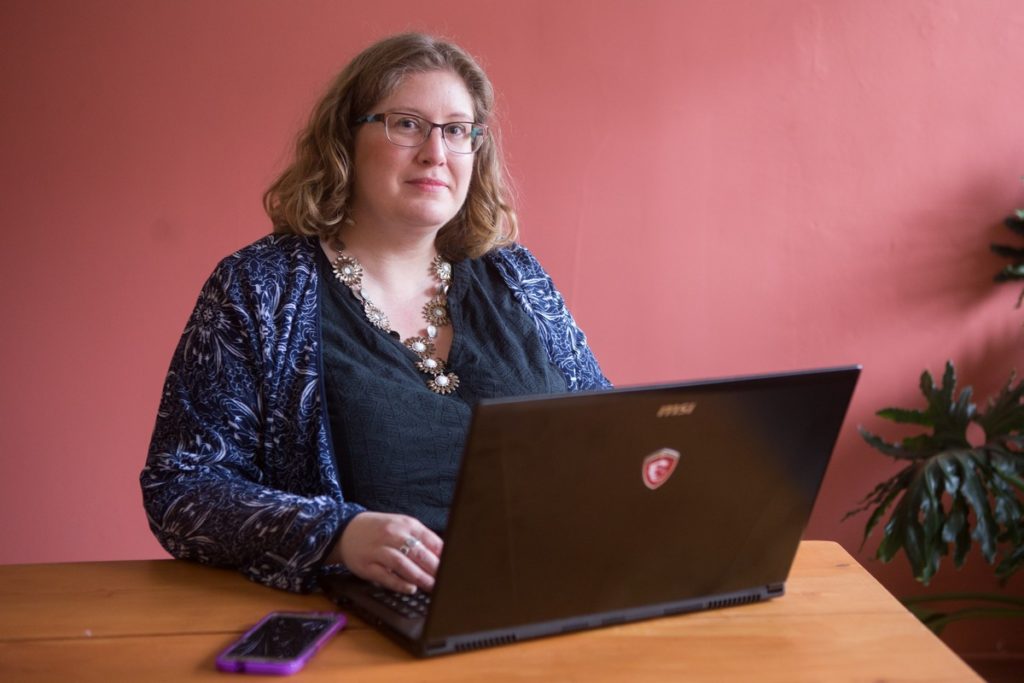
Let’s dig deep. Every Monday, I send out my Body Liberation Guide, a thoughtful email jam-packed with resources for changing the way you see your own body and the bodies you see around you. And it’s free. Let’s change the world together.
Hi there! I'm Lindley. I create artwork that celebrates the unique beauty of bodies that fall outside conventional "beauty" standards at Body Liberation Photography. I'm also the creator of Body Liberation Stock and the Body Love Shop, a curated central resource for body-friendly artwork and products. Find all my work here at bodyliberationphotos.com.

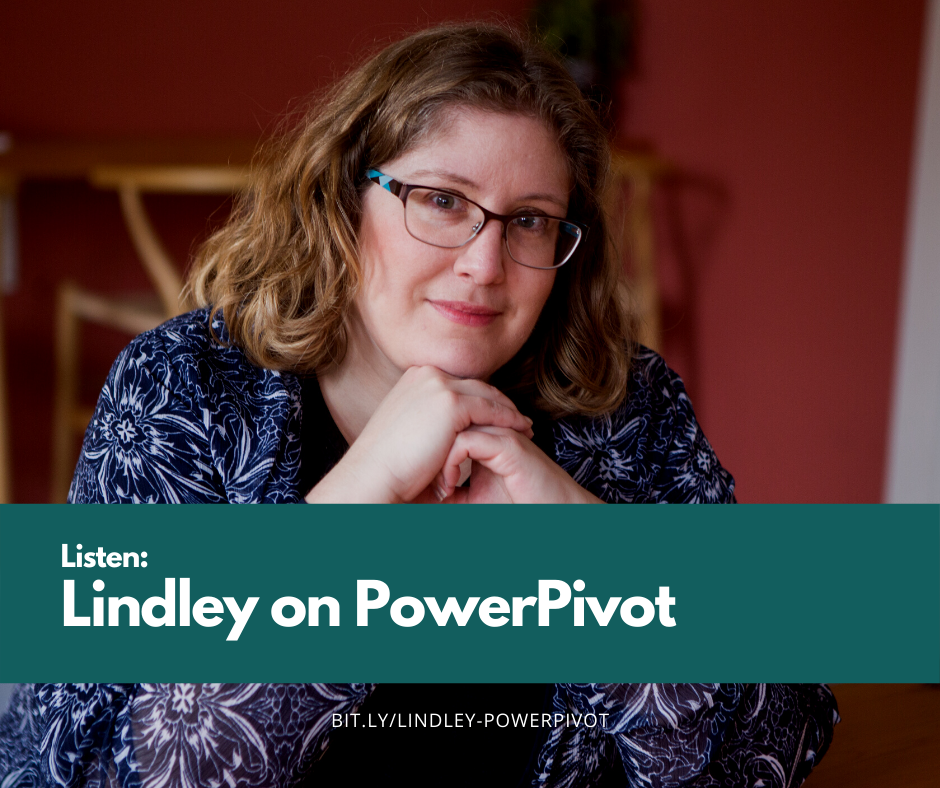
![Illustrated Art Stock: Plus Size Woman Covered with Flowers [Body Liberation Stock exclusive] - Body Liberation Photos & Stock](https://bodyliberationphotos.com/wp-content/uploads/2024/09/Illustrated-Art-Stock-Plus-Size-Woman-Covered-with-Flowers-Body-Liberation-Stock-exclusive-94337-600x600.jpg)
![Illustrated Art Stock: Plus Size Woman Twirls in a Skirt [Body Liberation Stock exclusive] - Body Liberation Photos & Stock](https://bodyliberationphotos.com/wp-content/uploads/2024/09/Illustrated-Art-Stock-Plus-Size-Woman-Twirls-in-a-Skirt-Body-Liberation-Stock-exclusive-94328-600x600.jpg)
![Illustrated Art Stock: Plus Size Woman Twirls in a Skirt [Body Liberation Stock exclusive] - Body Liberation Photos & Stock](https://bodyliberationphotos.com/wp-content/uploads/2024/09/Illustrated-Art-Stock-Plus-Size-Woman-Twirls-in-a-Skirt-Body-Liberation-Stock-exclusive-94323-600x600.jpg)
![Illustrated Art Stock: Plus Size Woman with Hands Over Breasts [Body Liberation Stock exclusive] - Body Liberation Photos & Stock](https://bodyliberationphotos.com/wp-content/uploads/2024/09/Illustrated-Art-Stock-Plus-Size-Woman-with-Hands-Over-Breasts-Body-Liberation-Stock-exclusive-94318-600x600.jpg)
![Illustrated Art Stock: Plus Size Woman with Hands Over Breasts [Body Liberation Stock exclusive] - Body Liberation Photos & Stock](https://bodyliberationphotos.com/wp-content/uploads/2024/09/Illustrated-Art-Stock-Plus-Size-Woman-with-Hands-Over-Breasts-Body-Liberation-Stock-exclusive-94313-600x600.jpg)
